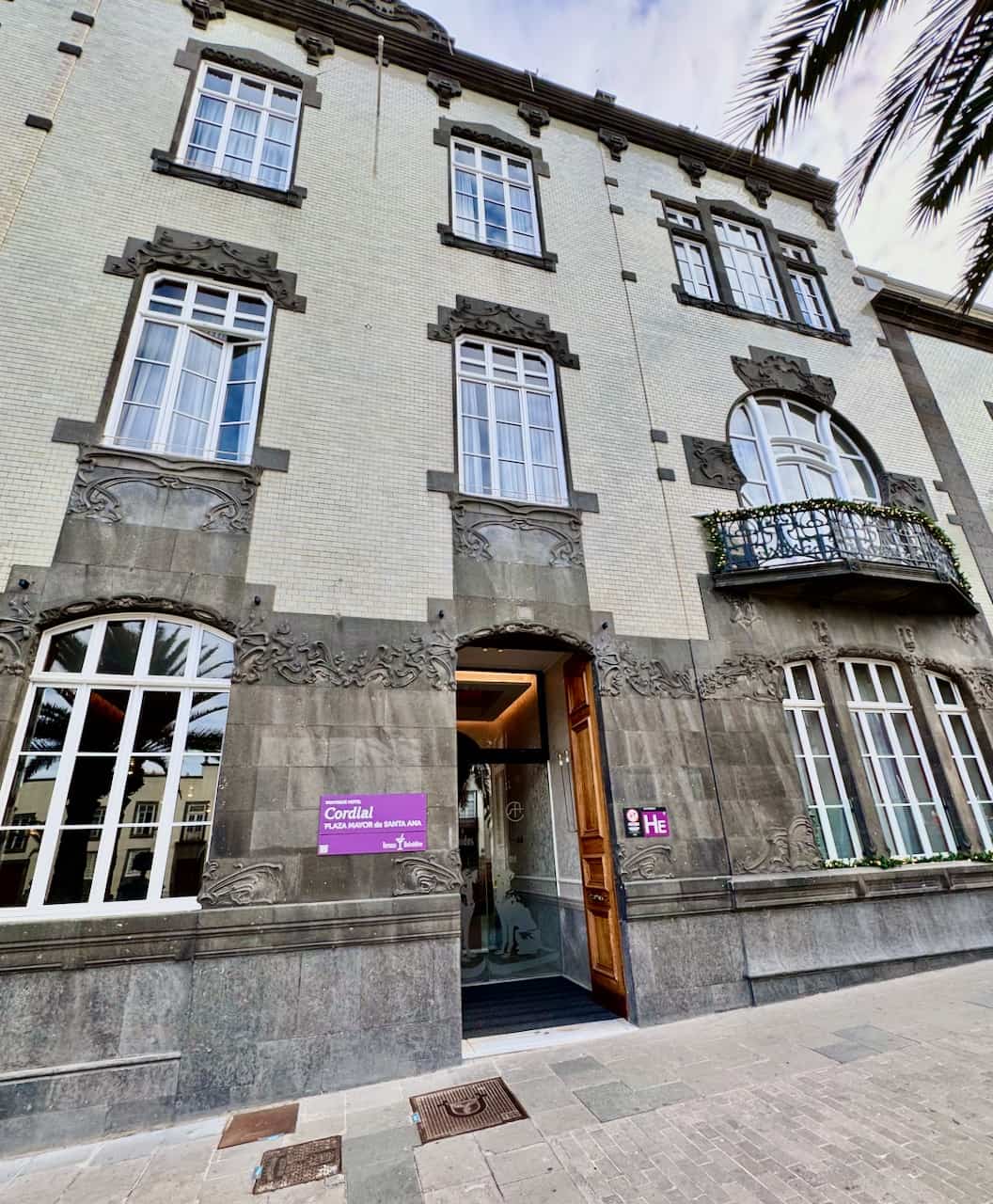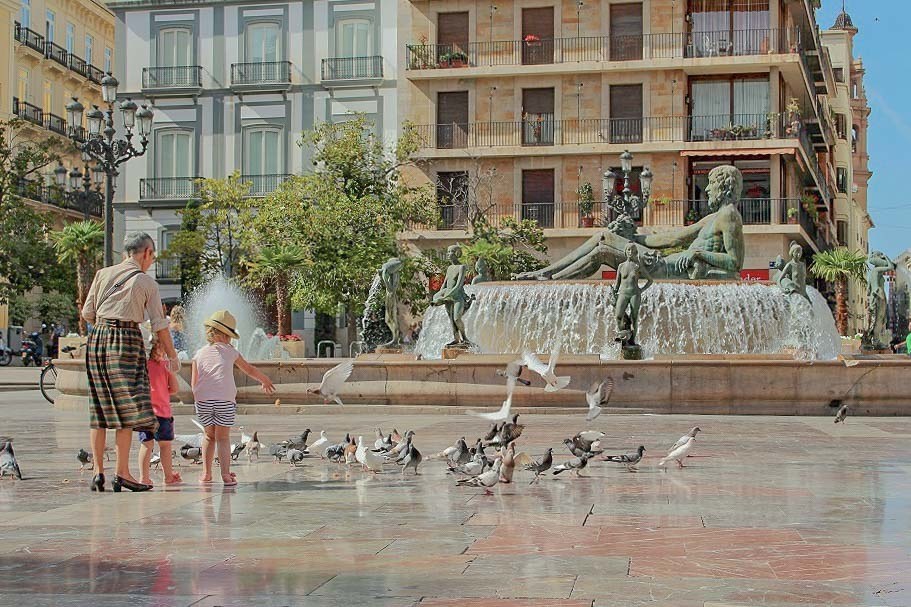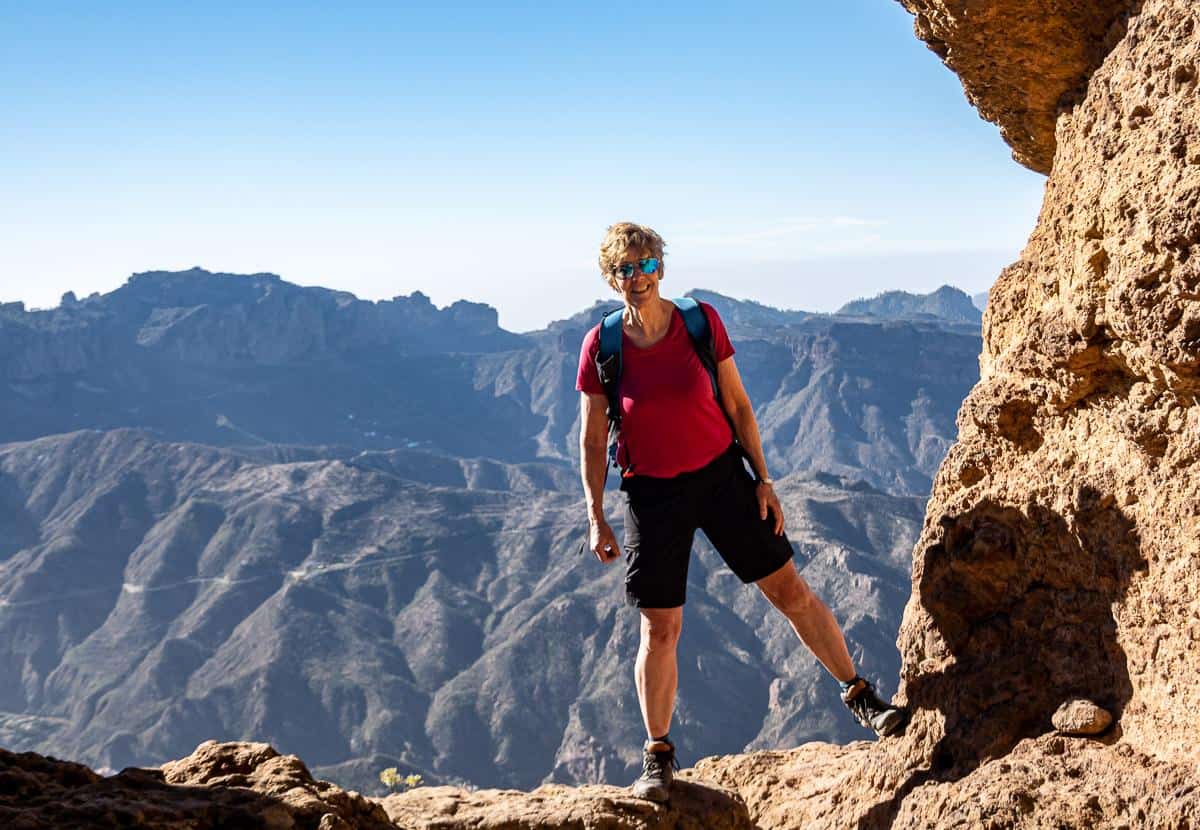Things to see in Las Palmas: a walk in the old town
7 min read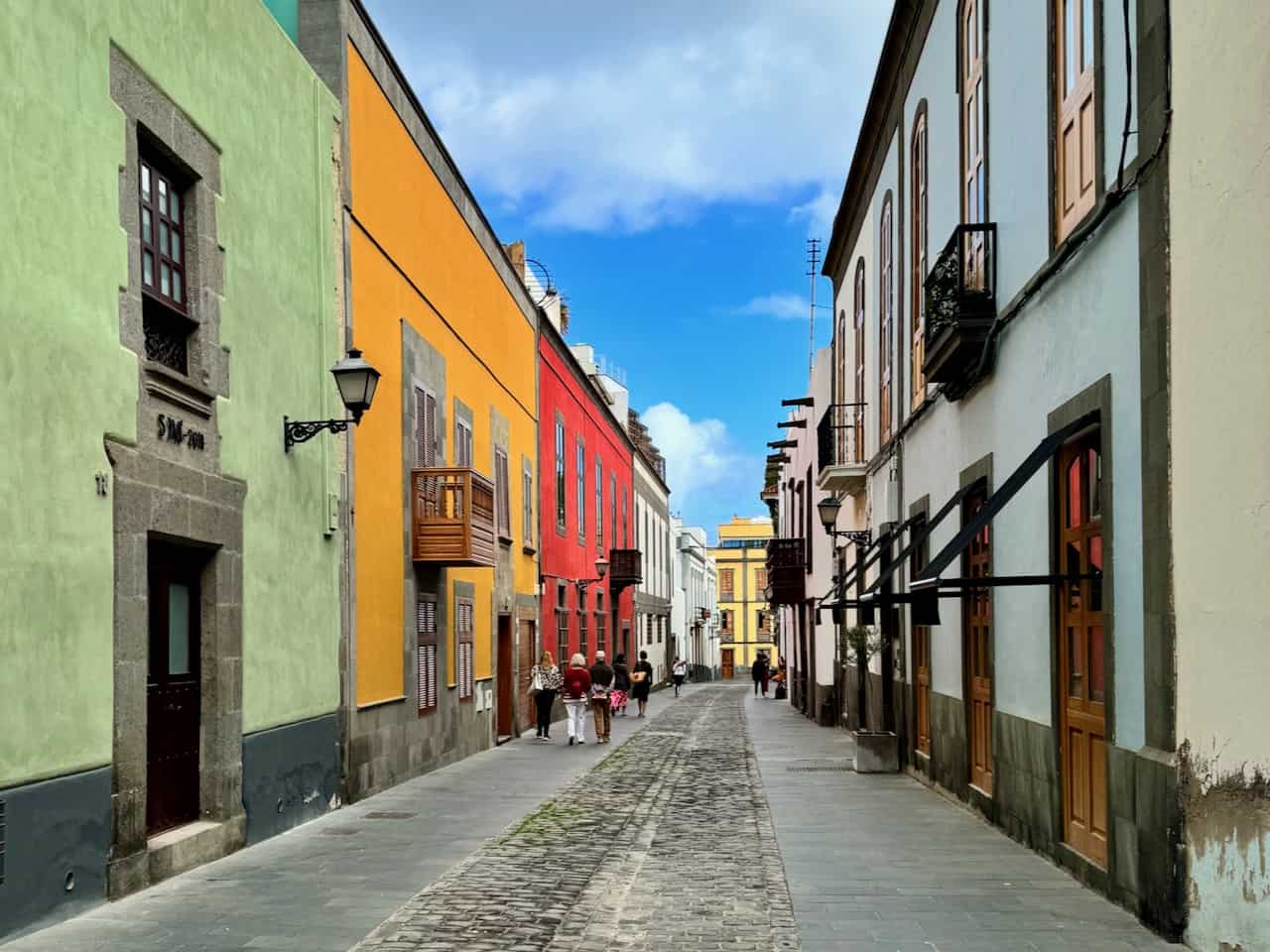
Table of Contents
Las Palmas de Gran Canaria, or simply, Las Palmas, is the largest city in Spain’s Canary Islands. Located in the northeastern corner of the island of Gran Canaria, 150km off the coast of Morocco, Las Palmas was founded in 1478. In 1492, Christopher Columbus stopped here on his way to the Americas. These days, Las Palmas is an absolutely beautiful city to visit. The historic centre is a tantalising maze of colourful streets and picturesque squares. I’ve visited Las Palmas on several occasions and I absolutely love the neighbourhoods of Vegueta and Triana in the old town. Below, you’ll find a walking route across the old town of Las Palmas. This route includes the most important things to see in Las Palmas as well as the city’s best museums and some of my favourite streets.
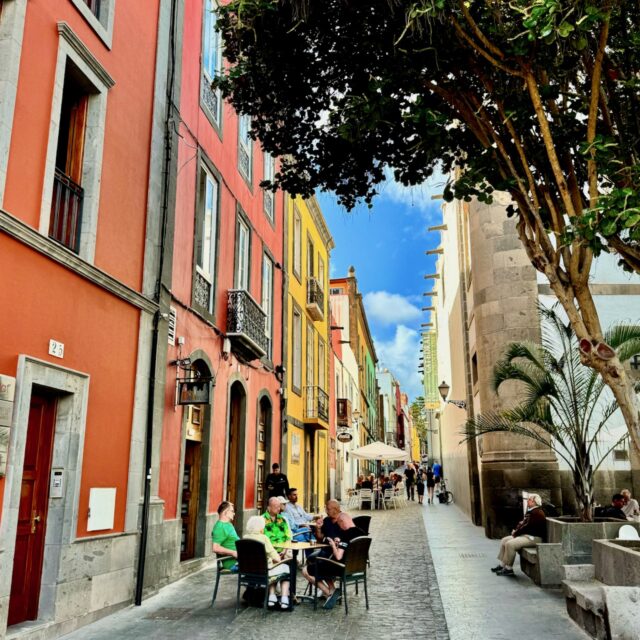

Art Nouveau or Modernist architecture in Las Palmas
As you explore Las Palmas, you’ll soon see numerous colourful Art Nouveau buildings. This architectural style arrived in Las Palmas in the late-19th century. Two architects, Laureano Arroyo Velasco and Fernando Navarro Navarro, designed many buildings in what they called the Canarian Modernism style during the early-20th century. These Art Nouveau or Modernist buildings have been lovingly restored and are scattered throughout the Triana and Vegueta neighbourhoods.
This walking route starts at Teatro Pérez Galdós in the Triana neighbourhood, a gorgeous part of the city with many Art Nouveau/Modernist buildings. It then continues past some of the highlights of Triana before crossing over to Vegueta, the oldest neighbourhood in Las Palmas. In Vegueta, you’ll find many of the biggest attractions of Las Palmas, including the Cathedral and Casa de Colón (Christopher Columbus House). This route can easily be done as (part of) a Las Palmas day trip. Here are the top sights on this walking tour of Las Palmas:
Teatro Pérez Galdós
This beautiful theatre was built in the late-19th century, rebuilt after a fire in the 1920’s and refurbished in 2007. The main hall, with its stunning ceiling, is a breathtaking sight. These days, the theatre is the most important venue for opera and classical performances in the city.
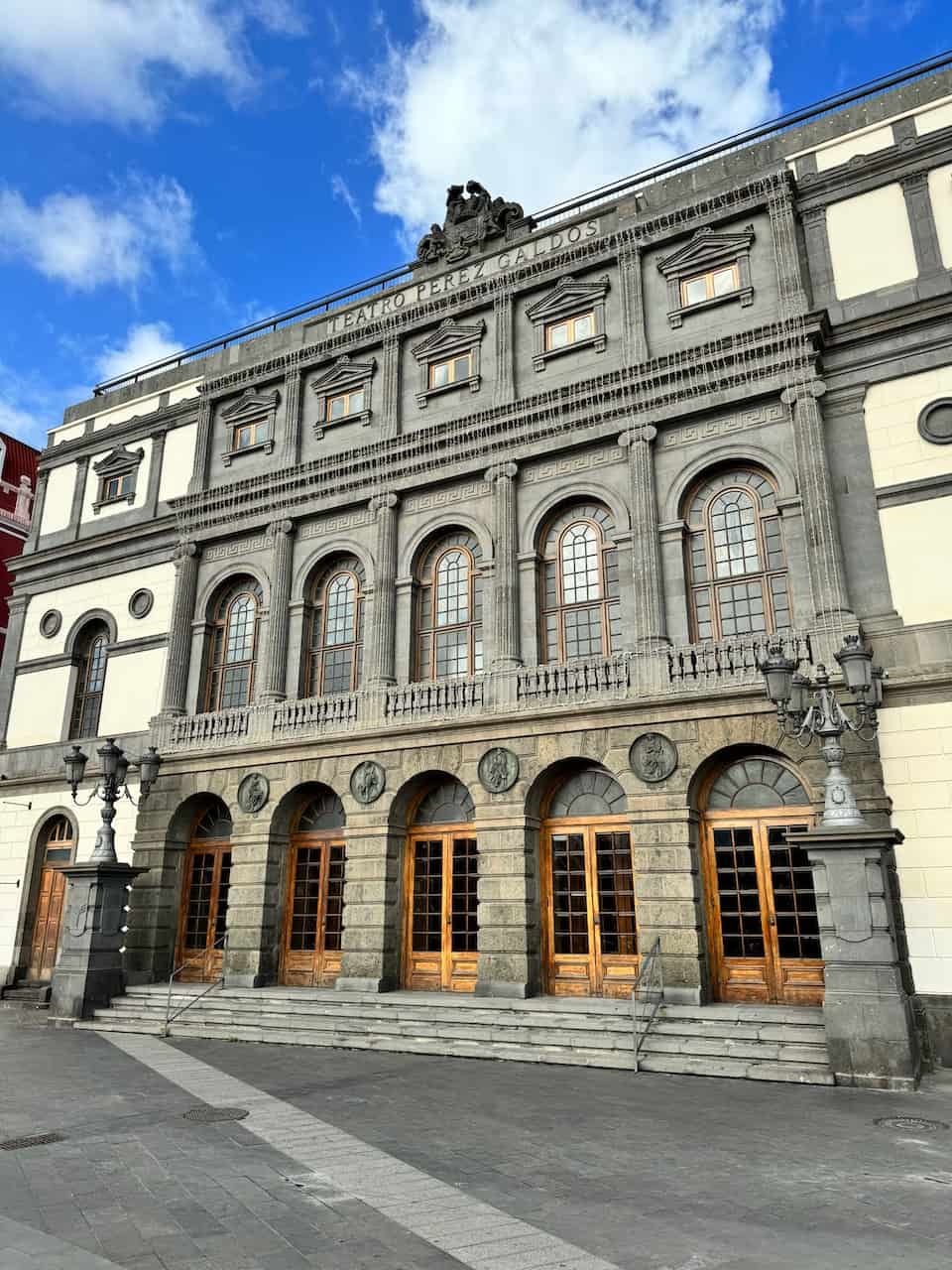
Palacete Rodriquez Quegles
From the theatre, continue to Calle Cano, and Calle Triana, two lovely streets lined by gorgeous 19th/20th century buildings filled with shops and cafés. You’ll find numerous Modernist gems in this street.
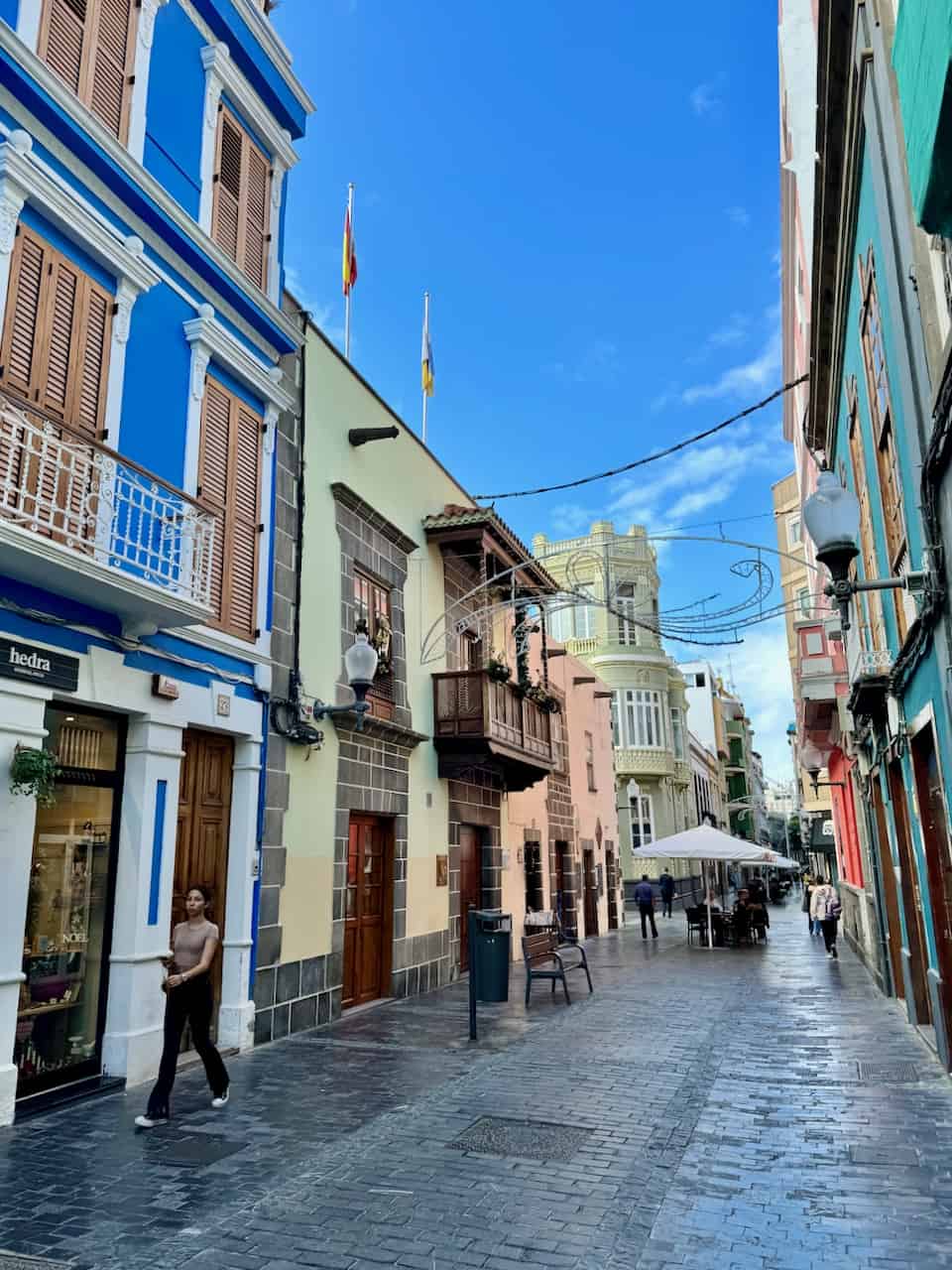
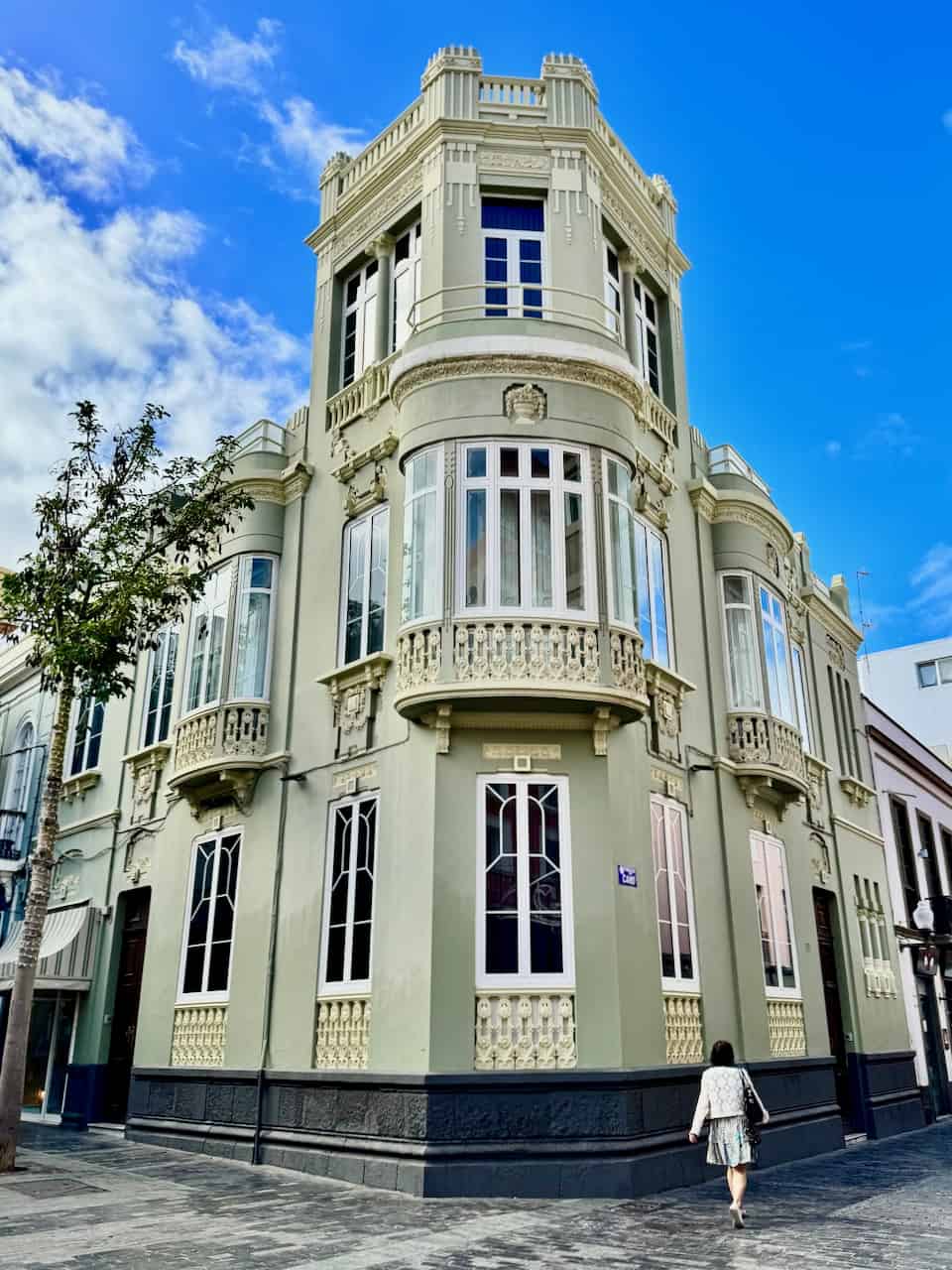
Turn left at Calle San Bernardo to visit Palacete Rodriguez Quegles, a stunning Modernist-style palace. Step inside, if it’s open, to admire the interior and stained glass windows.
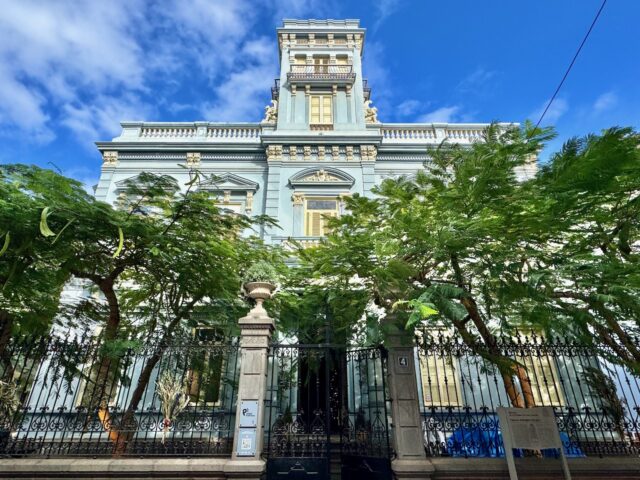
Gabinete Literario
Your next stop is down the road: the equally impressive Gabinete Literario (Literary Cabinet). This stunning building houses a cultural centre, library and a top-notch restaurant. I recommend going in to see its splendorous interior.
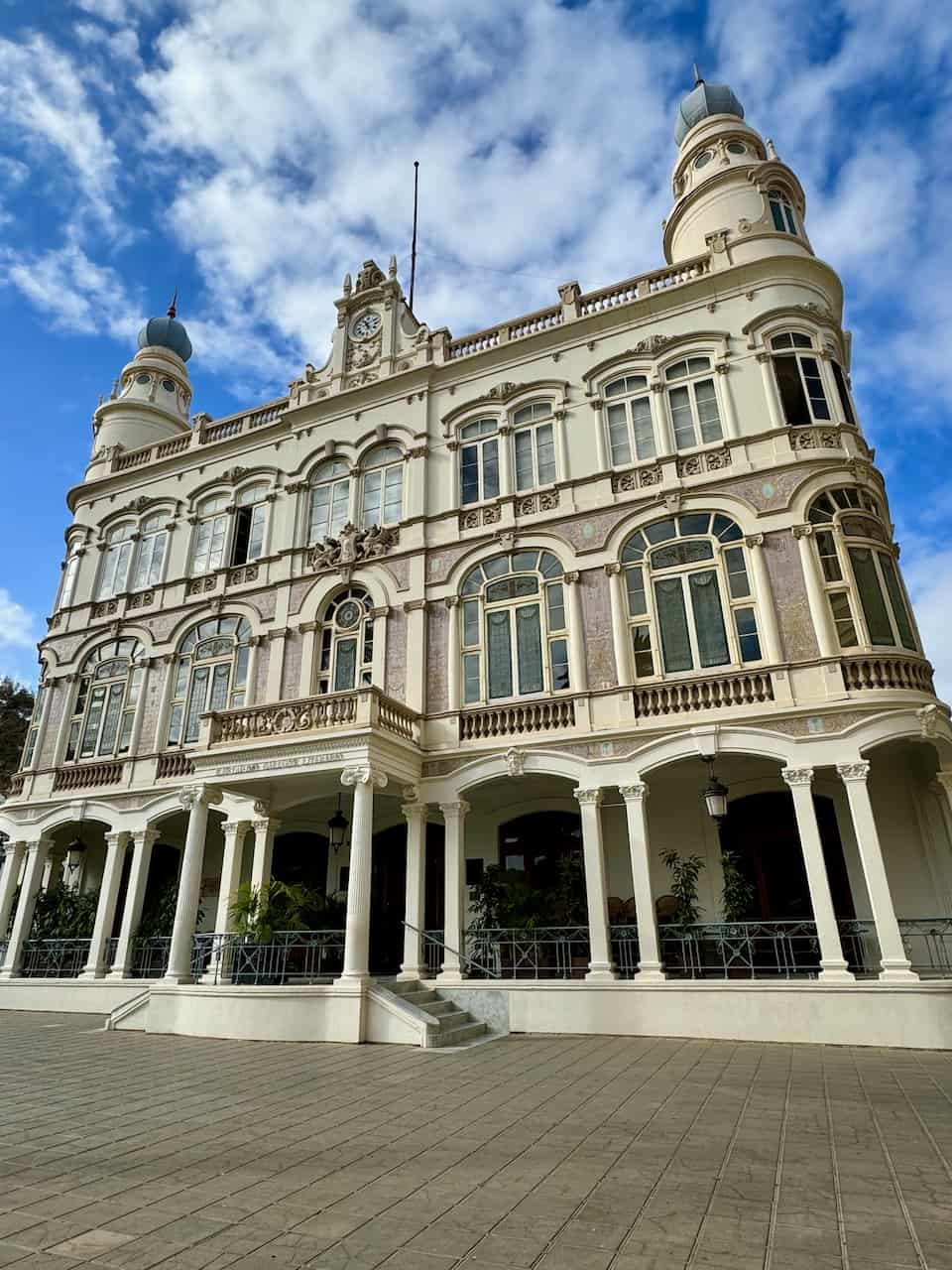
Plaza Hurtado de Mendoza (Plaza de las Ranas)
From the Gabinete Literario, it’s a short stroll to Plaza Hurtado de Mendoza. You’ll soon discover why it’s also known as Frogs’ Square! It’s a leafy square with lovely kiosks in a Modernist/Mudéjar style.
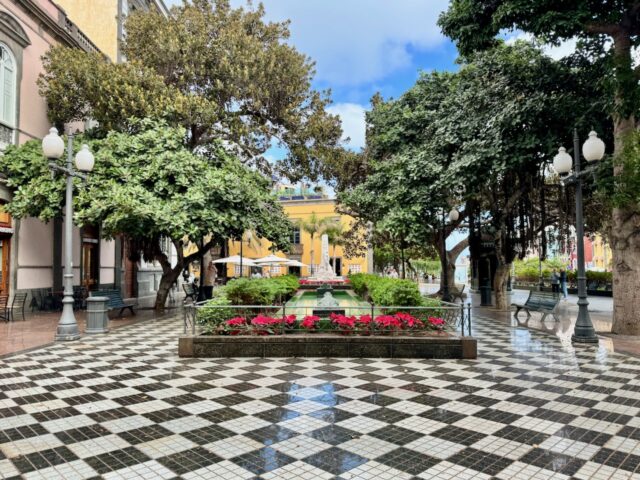
Mercado de Vegueta
From Plaza de las Ranas, cross the busy road to the Vegueta neighbourhood. Your next stop is the colourful Mercado de Vegueta. Here, you’ll find stalls selling fresh vegetables, meat and seafood. There are also several bistros (inside and outside the market) where you can stop for a snack and a drink.
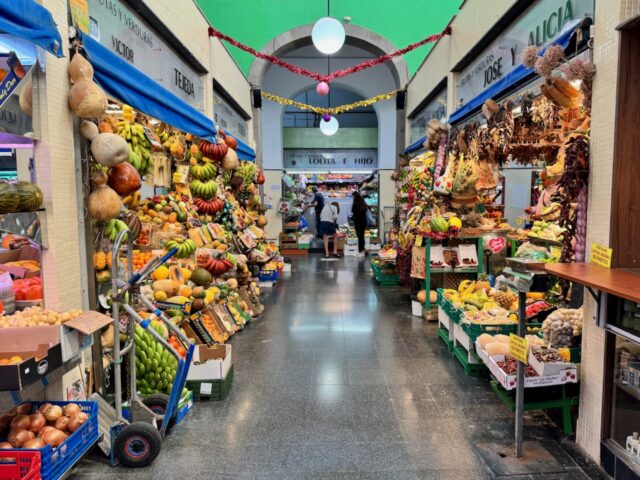
Casa de Colón
Wander around the atmospheric lanes of Vegueta, along the charming Calle Montesdeoca to Plaza San Antonio Abad and the adjacent Casa de Colón (Columbus House), one of the top attractions in Las Palmas.
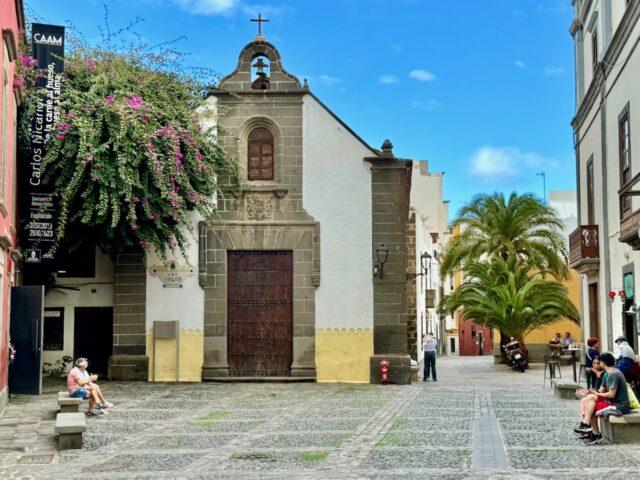
I recommend visiting this fascinating museum to learn about the ties between Christopher Columbus, his voyages to the Americas and Las Palmas.
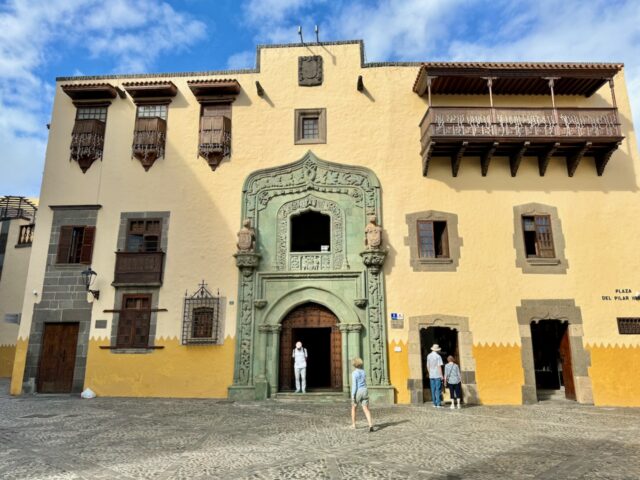
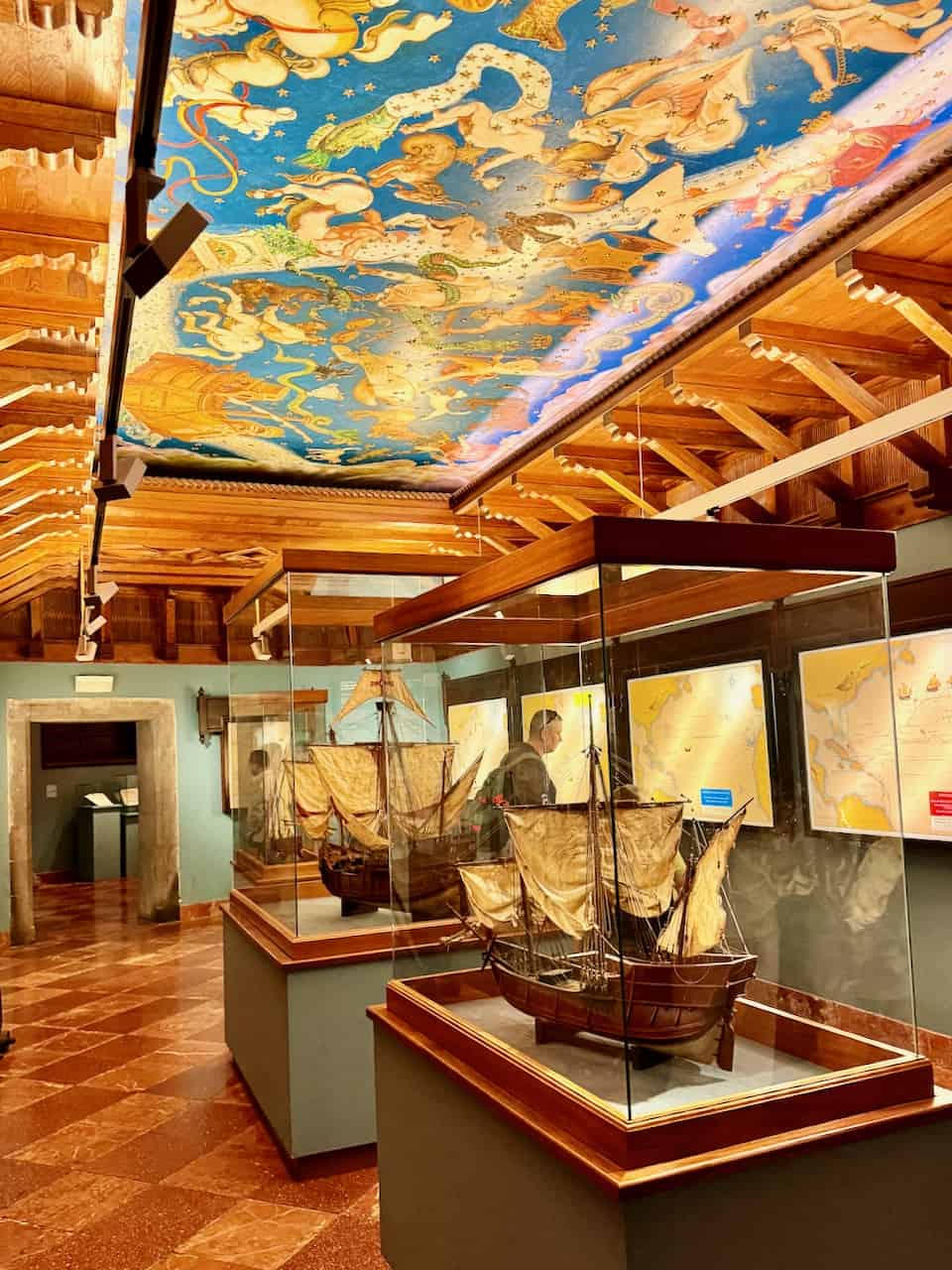
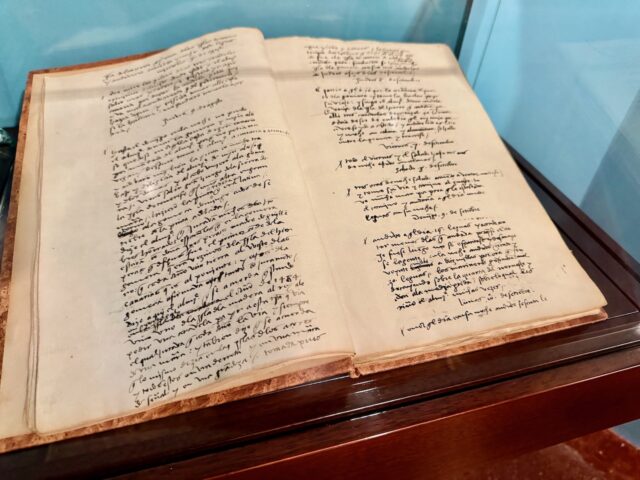
Cathedral and Plaza de Santa Ana
Your next stop is the Cathedral of Santa Ana, one of the top touristic things to see in Las Palmas. Located a short walk from Casa de Colón and fronting the grand Plaza de Santa Ana, the Cathedral was built in the 16th century in a Gothic style. The nave, with its towering columns and vaulted ceiling in the shape of palm fronds, is especially impressive.
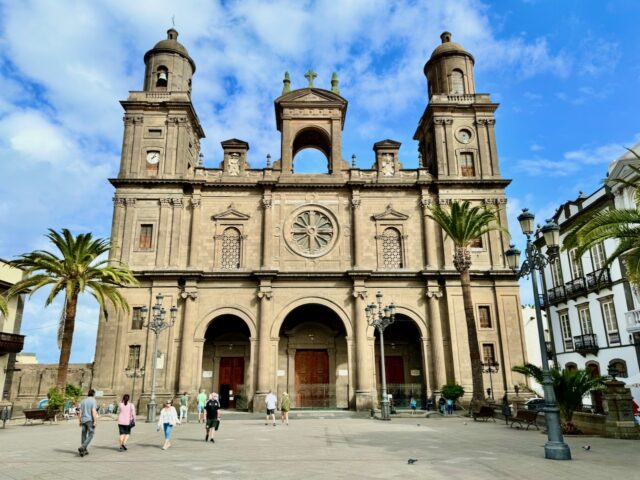
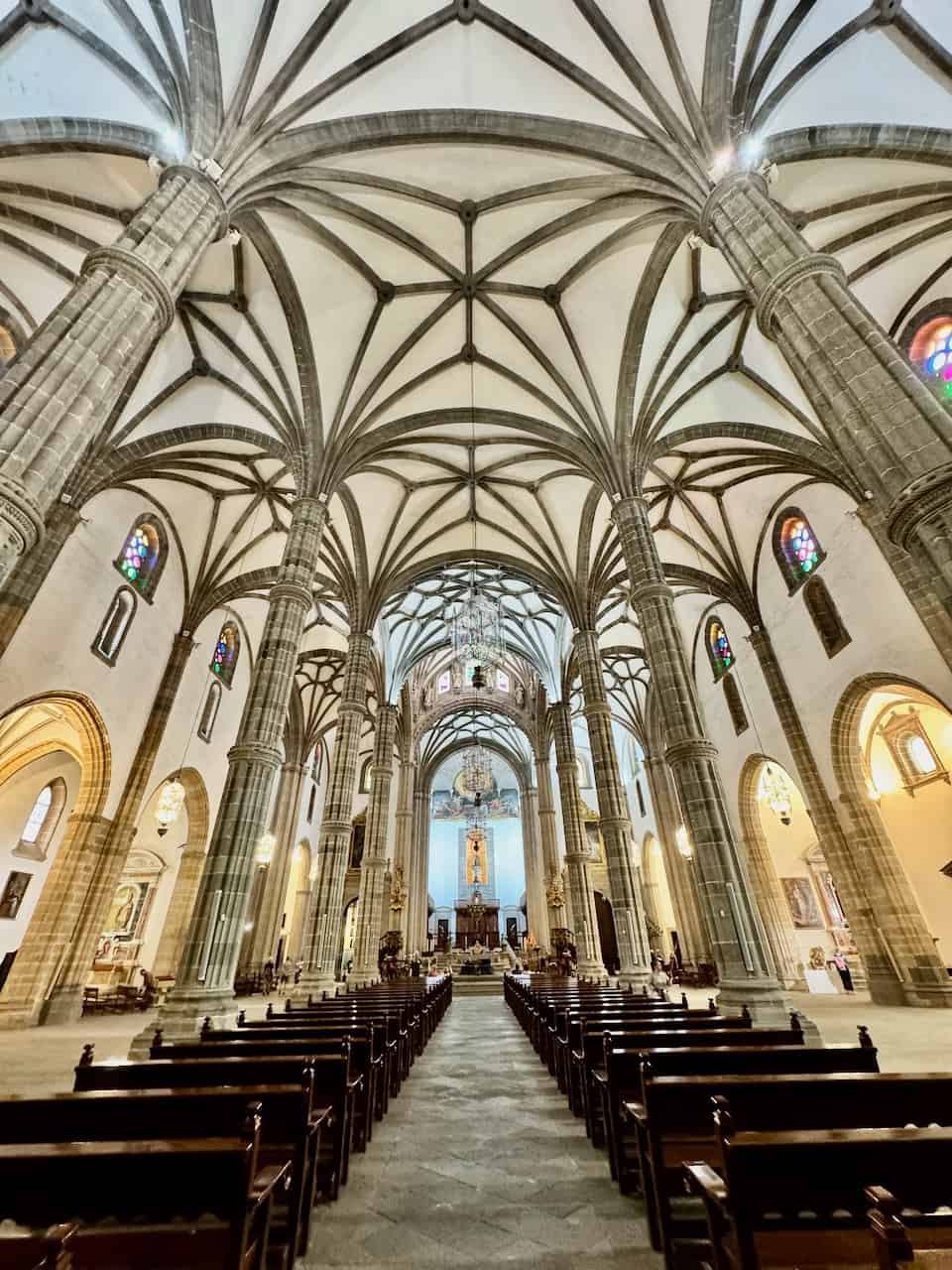
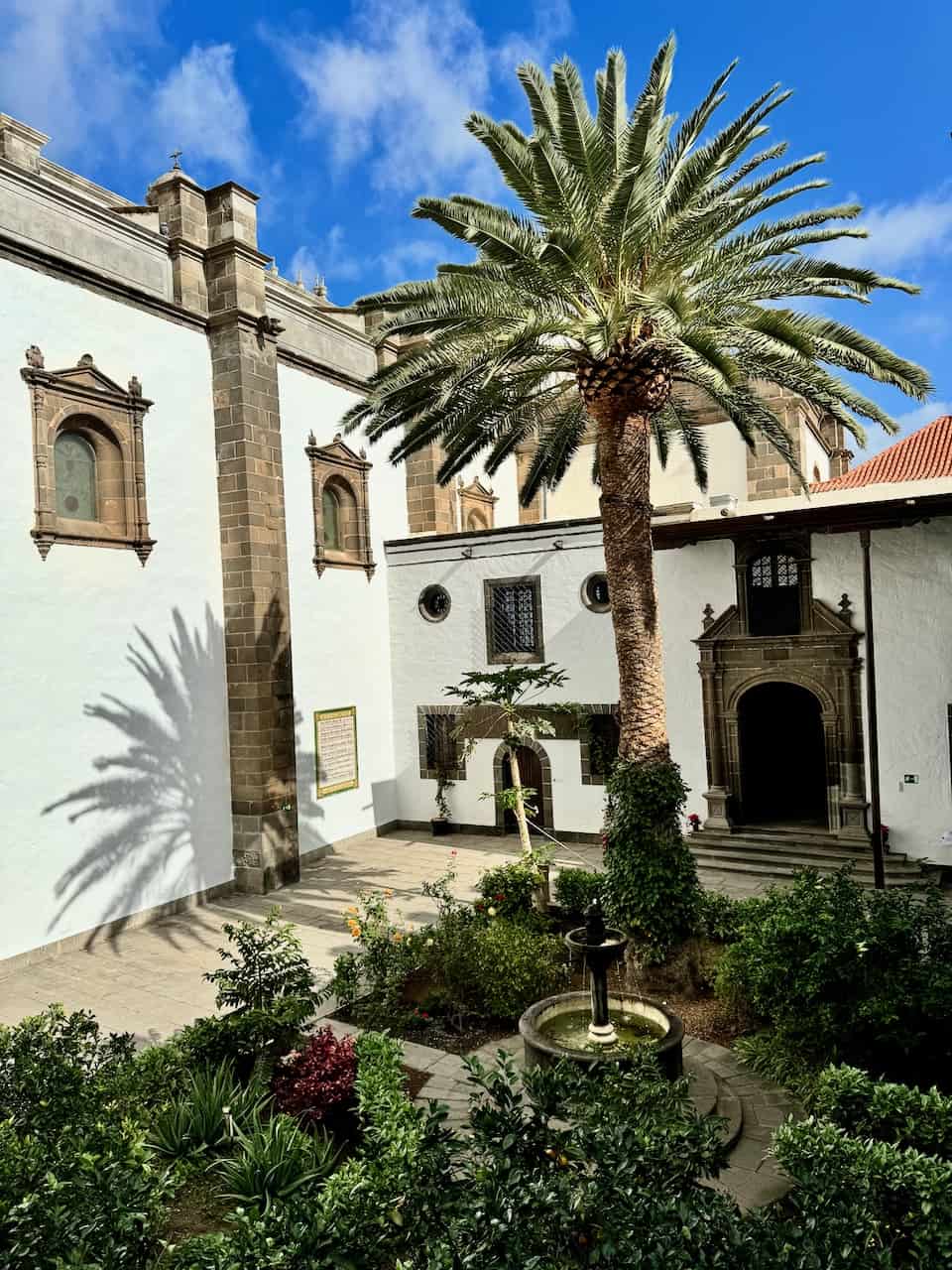
I highly recommend going up the tower (included in the ticket price) to enjoy the panoramic views of Las Palmas. You can choose between the stairs and the elevator.
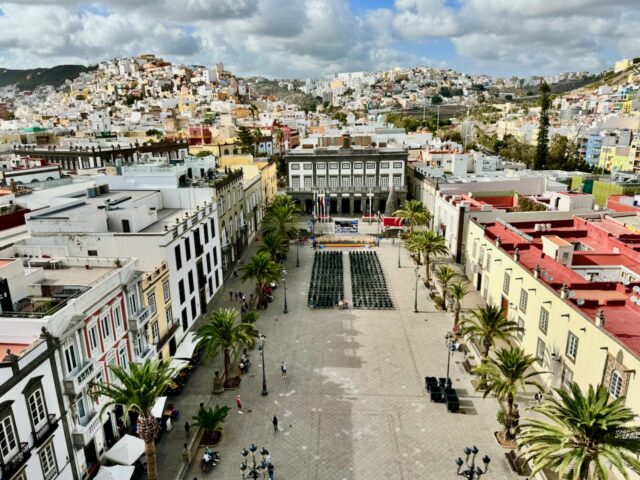
Plaza de Santa Ana is the largest and most beautiful square in the old town. Lined by decorative palm trees and elegant buildings, this square is a visual treat. Facing the square with your back to the Cathedral (photo above), the buildings on the right are the Episcopal Palace and the Bishopric of the Canary Islands. At the far end stands the Casas Consistoriales, the former City Hall, which now houses the tourist office. On the left are various boutique hotels as well as the Historic Archives of Las Palmas. One of the hotels, Cordial, has a rooftop bar and terrace with fabulous views (scroll down to the end of this walking route to check out the views).
Plaza de Espíritu Santo
This triangular square is located a stone’s throw from Plaza de Santa Ana. The iconic fountain is one of the few remaining covered fountains of Hispanic architecture. The square is surrounded by stately, colourful buildings. The little garden is home to flowering shrubs and trees that represent the link between the Canary Islands and the Americas.
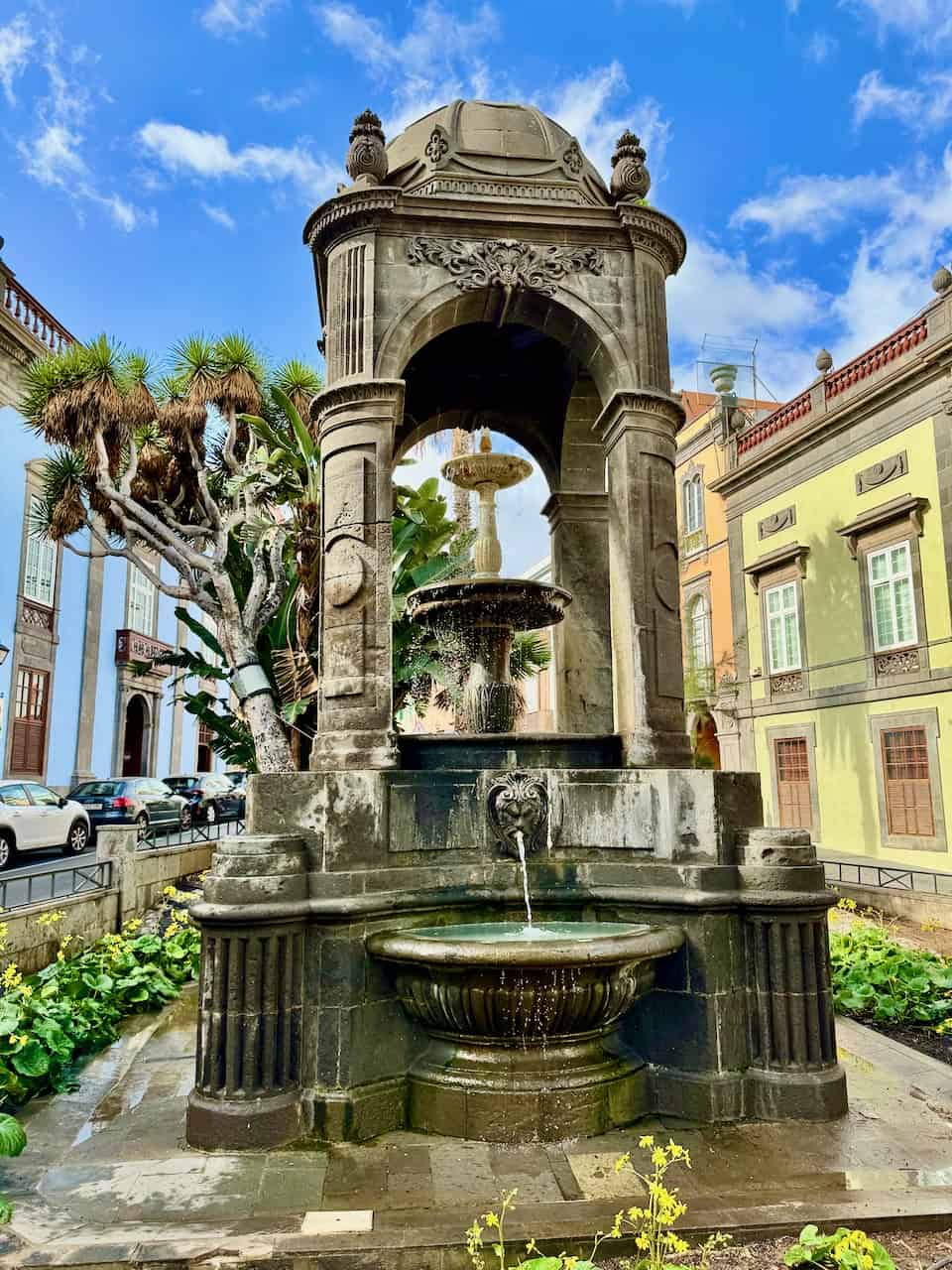
Plaza de Santo Domingo
From Plaza de Espíritu Santo, head south to Plaza de Santo Domingo. Along the way, you’ll pass the Museo Canarias (a Canarian archeological museum). Plaza de Santo Domingo is a tranquil square with many trees and a fountain. It’s surrounded by lovely houses as well as the 17th century Church of Santo Domingo de Guzmán.
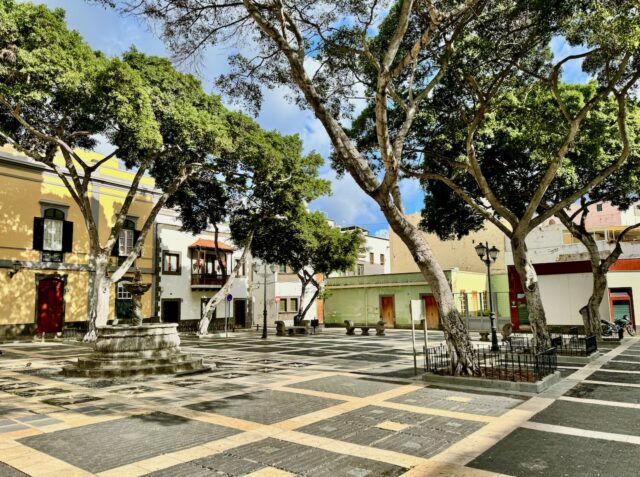
I recommend exploring the quieter streets around Plaza de Santo Domingo. Calle Hernán Pérez de Grado is filled with brightly coloured houses. You can also continue westwards to P. de San Jose. From this street, alleys continue up the steep slopes of the hills. The Ascensor (elevator) makes it easier for locals to reach the higher neighbourhoods – and offers great panoramic views too.

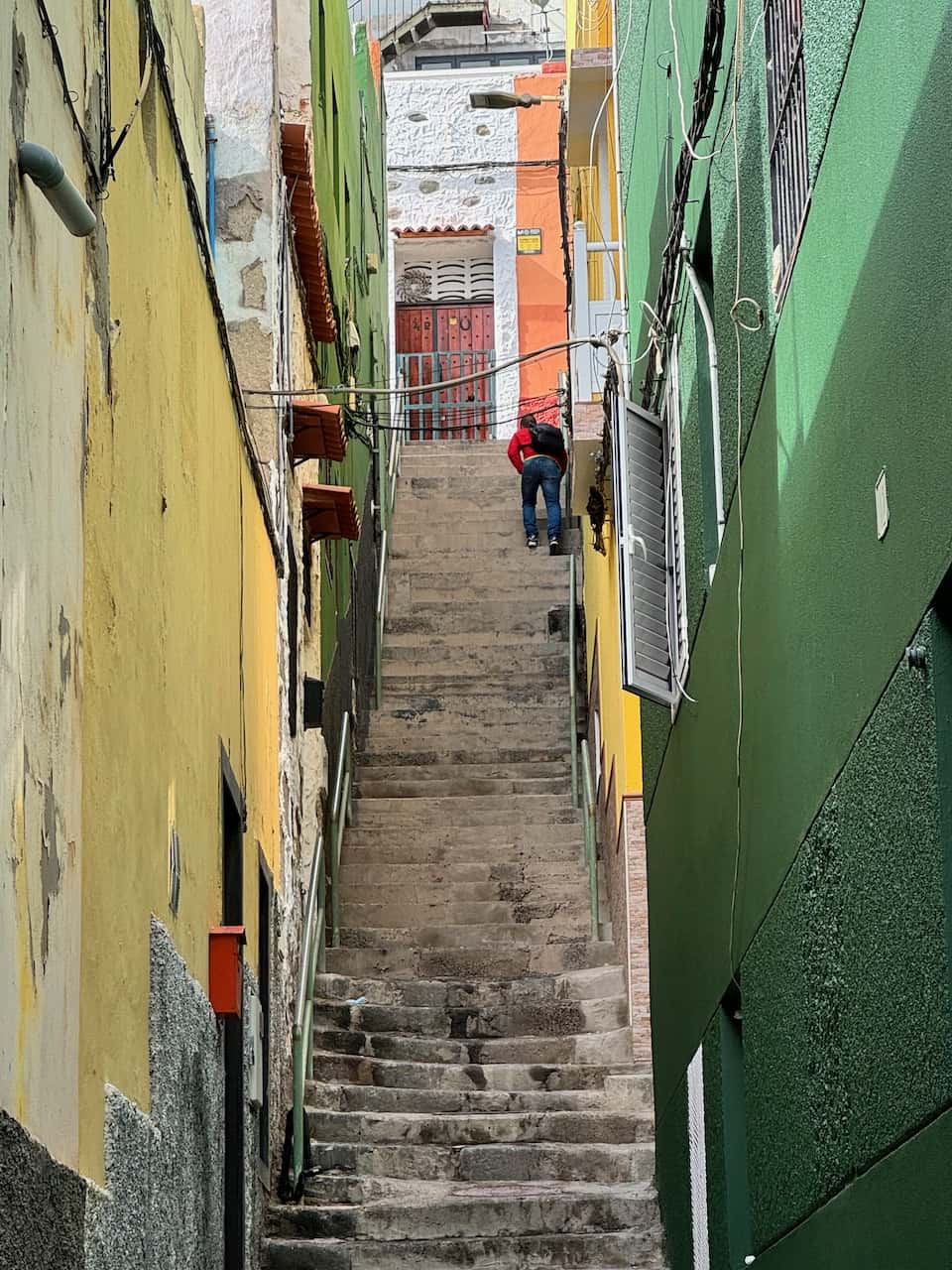
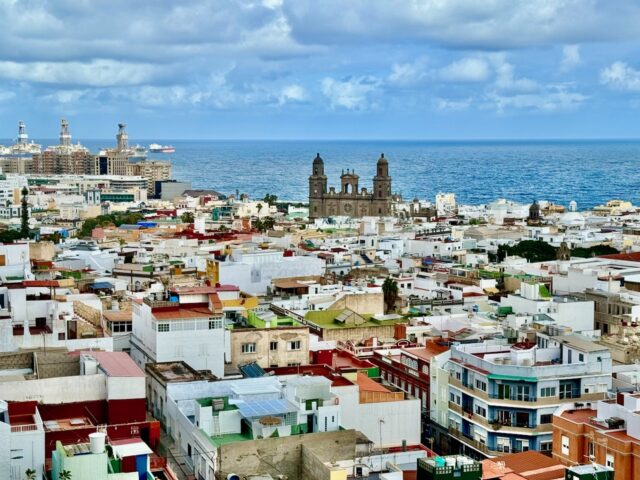
From Plaza de Santo Domingo, you can also head eastwards along Calle Domingo Doreste, then north along Calle Alcalde Francisco Hernández González towards Plaza de San Agustín. Check out the gorgeous Modernist building (MASAP Anticuario) at the corner of Calle Juan E. Doreste.
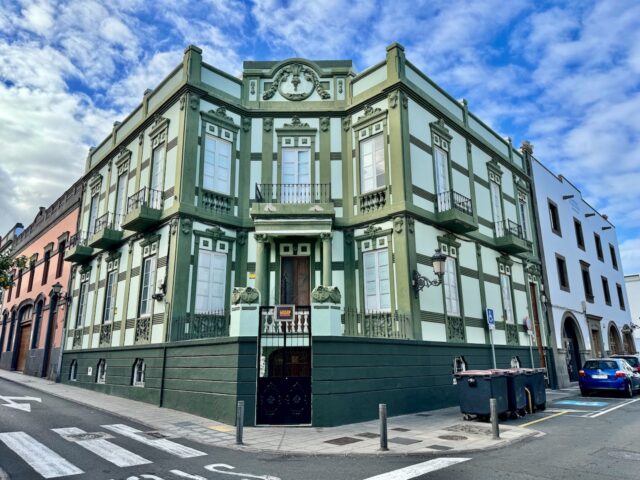
If you’re hungry, I can recommend a meal at Restaurant Dos Balcones (Calle Domingo Doreste, 12), a few blocks east of Plaza Santo Domingo.
CAAM (Atlantic Centre of Modern Art)
Slowly make your way to the Atlantic Centre of Modern Art, a beautiful contemporary art museum (free entrance). Along the way, be sure to stroll along some of my favourite streets in this area, including Calle Espíritu Santo and Calle los Balcones. You can also stop for a drink at the lovely Plaza de El Cortado, in the shade of the Cathedral.
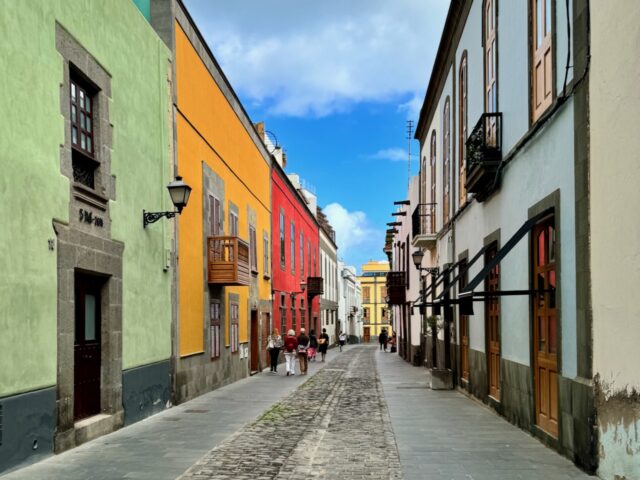
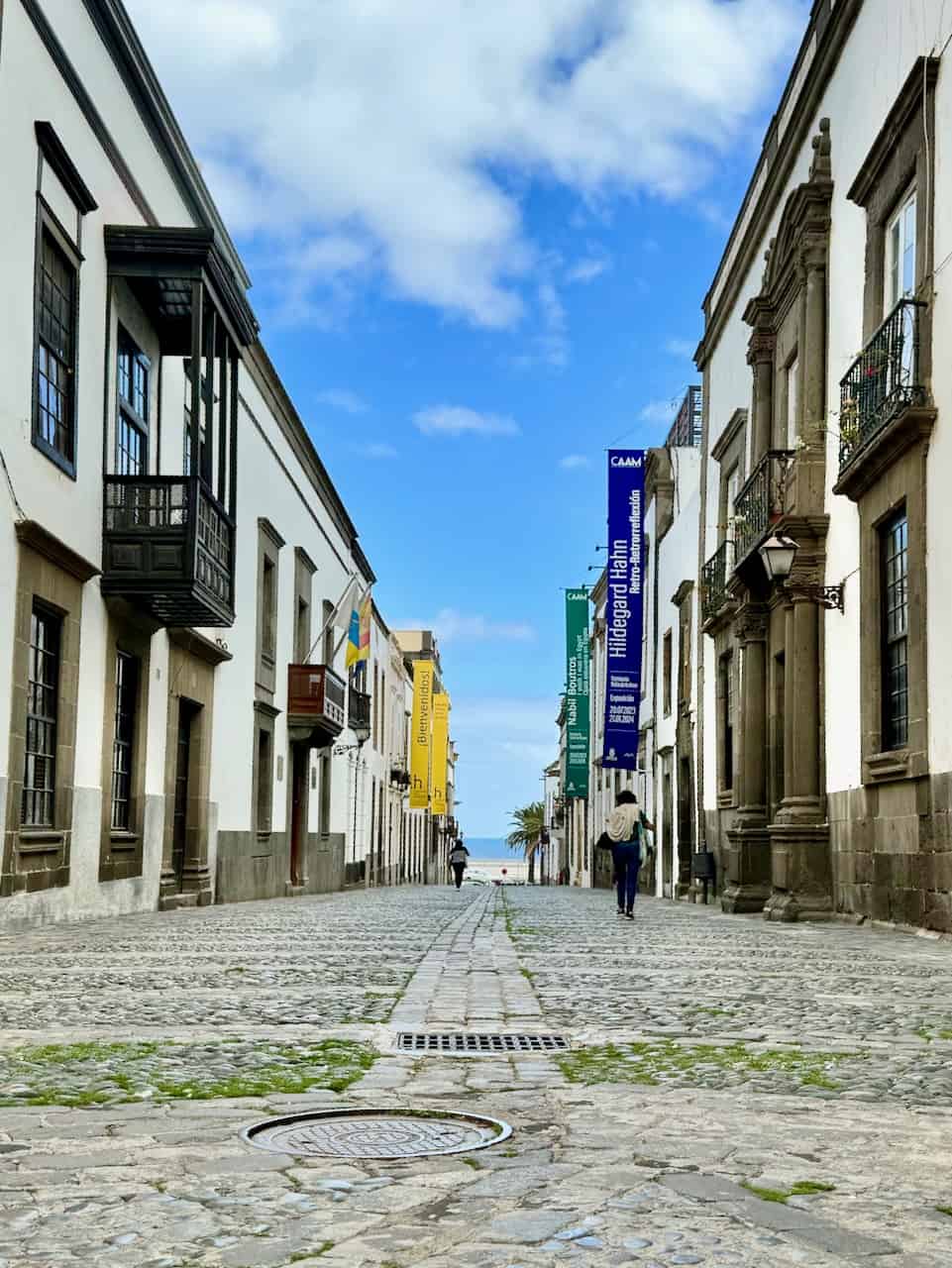
A cocktail with a view
To cap off your exploration of Las Palmas, I recommend heading to Terraza Belvedere, a rooftop bar at Boutique Hotel Cordial Plaza Mayor de Santa Ana. This bar (with terraces on two levels) offers stunning views of Plaza de Santa Ana, the Cathedral and practically the whole of Las Palmas. Order a cocktail and enjoy the views!
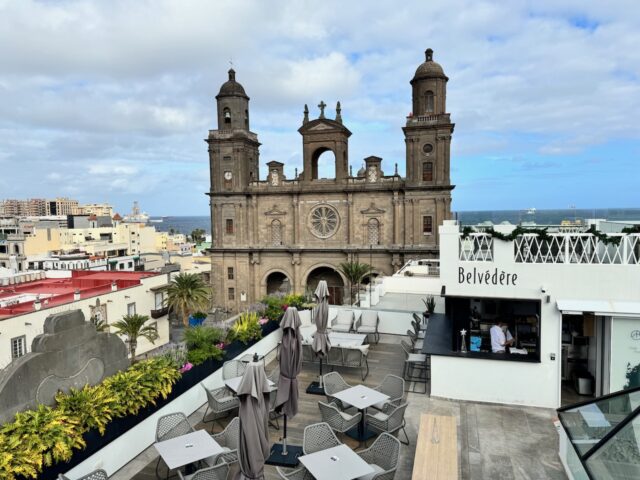
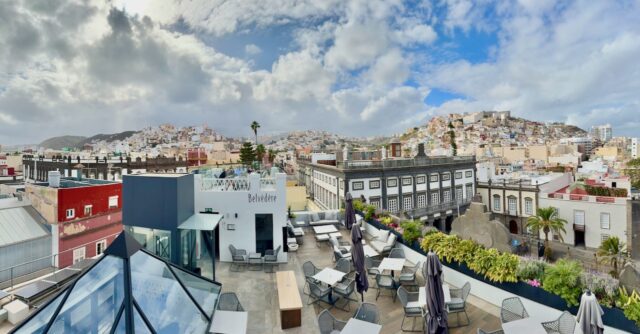
How to get to Las Palmas
Las Palmas has an international airport with frequent flights to the European mainland. The airport is about 20 minutes south of the city. If you’re staying in the south of the island, Las Palmas makes for a terrific day trip. There are regular buses to Las Palmas from various points along the south coast such as Maspalomas. Disembark at Teatro Pérez Galdós to start this walking route.
Where to stay in Las Palmas
Las Palmas is great as a day trip from the coast but I recommend spending a few nights there to truly immerse yourself in this beautiful city. There’s a lot more to see and do in Las Palmas, such as its beaches and the nearby fishing town of San Cristóbal. For a place to stay, I can definitely recommend Boutique Hotel Cordial Plaza Mayor de Santa Ana. Search for hotels in Las Palmas (Booking.com).
